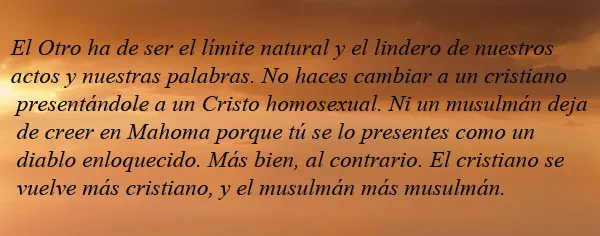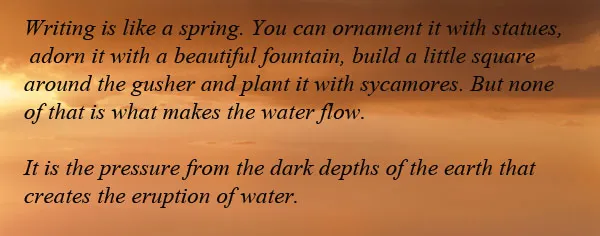
Encontrar un buen libro a veces es un asunto de suerte. Son tantas las obras que se publican cada día que es imposible poder pasar revista a todo lo que va saliendo.
Uno de mis pasatiempos favoritos es revisar reseñas, las busco en portales especializados o me llegan sin previo aviso por las redes sociales. Allí también está presente el dilema de cuál elegir; cada día estoy más convencido de que es el libro el que lo encuentra a uno y no al revés.
No sabría ubicar el momento en el que llegue a esta magistral obra de Theodor Kallifatides, “Otra vida por Vivir”, publicada en 2019. Seguro que fue buscando en internet porque la obra la leí en mi teléfono, luego de descargarla en alguno de esos sitios donde gente generosa entiende que hay personas que solo tienen esta opción para leer.
Kallifatides, es un autor griego, que llegó a Suecia en su juventud, en los años sesenta. Allá logró triunfar como escritor, ha conocido la fama y muchos lectores que lo aprecian. Durante cincuenta y cinco años se ha dedicado a escribir en ese país nórdico, allí ha formado una familia feliz con su esposa, sus hijos y sus nietos.
En esta obra el autor se vale del tono testimonial para dejarnos una especie de memoria muy resumida de lo que ha sido su vida.

El punto de partida es una crisis de creatividad. A los setenta y siete años se da cuenta que se le acabaron las ideas, que no encuentra qué escribir. Todos los días llega a su estudio a vivir un suplicio porque las palabras lo han abandonado, no está conforme con lo que le sale, se siente seco y vacío.
Así que se resigna y decide dejar la escritura. Para confirmar esta determinación vende su estudio, el que ha sido su santuario desde que comenzó a garabatear sus primeras páginas.
Trata de comenzar una nueva vida, se olvida de todo y decide realizar un viaje a su Grecia natal, aprovechando que le han dado el gran reconocimiento de bautizar con su nombre a una escuela de su pueblo.

Son varios los temas que se encuentran en “Otra vida por vivir”. Uno transversal es el drama de la emigración. Aunque Kallifatides ha encontrado en Suecia el éxito y la felicidad, siempre ha sentido que de algún modo no pertenece a ningún lado. Y eso que ha hecho enormes esfuerzos por integrarse a la sociedad que lo acogió, al punto de que solo escribe en sueco y nunca enseñó a sus hijos y sus nietos a hablar el griego.
Otro gran tema es el del envejecimiento. El autor pasa revista a su proceso personal. Nos cuenta cómo va extrañando el mundo amable, tranquilo y acogedor de la Suecia de su juventud. Con un lenguaje sencillo y altamente poético nos deja saber todo lo que le cuesta adaptarse a los grandes cambios impuestos por la globalización, principalmente en las relaciones humanas, donde ve que se va perdiendo calidez.

Al final, Kallifatides logra ajustar cuentas con su identidad perdida, lo consigue gracias a la magia del lenguaje. Luego de casi sesenta años se atreve a volver a escribir en griego, con muchas dudas, porque de algún modo es como aprender de nuevo un lenguaje que casi ha dejado en el olvido. Es un proceso que le permite reencontrarse.
La obra de Kallifatides no es un canto a la nostalgia. Es una obra sobria, sincera, donde un gran escritor habla de las vivencias cotidianas de cualquier hombre común, con sus dudas, sus temores y con el deseo de encontrar esperanzas que alimenten la energía vital.
Si tienen la oportunidad busquen la obra en internet, se puede conseguir en varios sitios, estoy seguro que les va a gustar.
Gracias por tu tiempo.
Fuente de imágenes. I
Todas las citas son tomadas de una edición digital disponible en la web.

English
Finding a good book is sometimes a matter of luck. There are so many books published every day that it is impossible to review everything that comes out.
One of my favorite pastimes is to review reviews, I look for them in specialized portals or they arrive unannounced through social networks. There is also the dilemma of which one to choose; every day I am more and more convinced that it is the book that finds you and not the other way around.
I would not know how to place the moment when I arrived at this masterful work by Theodor Kallifatides, "Another Life to Live", published in 2019. I'm sure it was by searching the internet because I read the work on my phone, after downloading it on one of those sites where generous people understand that there are people who only have this option to read.
Kallifatides, is a Greek author, who came to Sweden in his youth, in the sixties. There he succeeded as a writer, he has known fame and many readers who appreciate him. For fifty-five years he has dedicated himself to writing in that Nordic country, where he has formed a happy family with his wife, children and grandchildren.

In this work the author uses the testimonial tone to leave us a kind of very summarized memory of what his life has been.
The starting point is a crisis of creativity. At the age of seventy-seven he realizes that he has run out of ideas, that he cannot find anything to write. Every day he comes to his studio to live a torment because the words have abandoned him, he is not satisfied with what comes out, he feels dry and empty.
So he resigns himself and decides to give up writing. To confirm this determination, he sells his studio, which has been his sanctuary since he began to scribble his first pages.
He tries to start a new life, forgets everything and decides to take a trip to his native Greece, taking advantage of the great recognition he has been given to baptize a school in his village with his name.

There are several themes to be found in "Another Life to Live". One transversal one is the drama of emigration. Although Kallifatides has found success and happiness in Sweden, he has always felt that somehow he does not belong anywhere. And yet he has made enormous efforts to integrate into the society that welcomed him, to the point that he only writes in Swedish and has never taught his children and grandchildren to speak Greek.
Another major theme is that of aging. The author reviews his personal process. He tells us how he is missing the kind, quiet and welcoming world of the Sweden of his youth. With a simple and highly poetic language he lets us know how hard it is for him to adapt to the great changes imposed by globalization, mainly in human relationships, where he sees that he is losing warmth.

In the end, Kallifatides manages to settle accounts with his lost identity, thanks to the magic of language. After almost sixty years, he dares to write in Greek again, with many doubts, because in a way it is like learning again a language he has almost forgotten. It is a process that allows him to find himself again.
Kallifatides' work is not a hymn to nostalgia. It is a sober, sincere work, where a great writer speaks of the daily experiences of any common man, with his doubts, his fears and the desire to find hopes that feed the vital energy.
If you have the opportunity, look for it on the internet, you can find it in several places, I am sure you will like it.
Thanks for your time.
Image source. I
All quotes are taken from a digital edition available on the web.
Translated with www.DeepL.com/Translator (free version)







Te invito a apoyar este proyecto como witness y a formar parte de esta gran comunidad uniéndote a su Discord en el siguiente enlace:
Discord de la comunidad Cervantes

